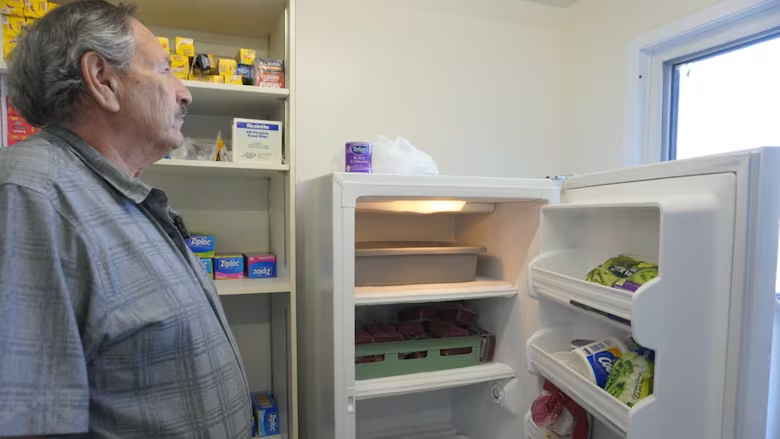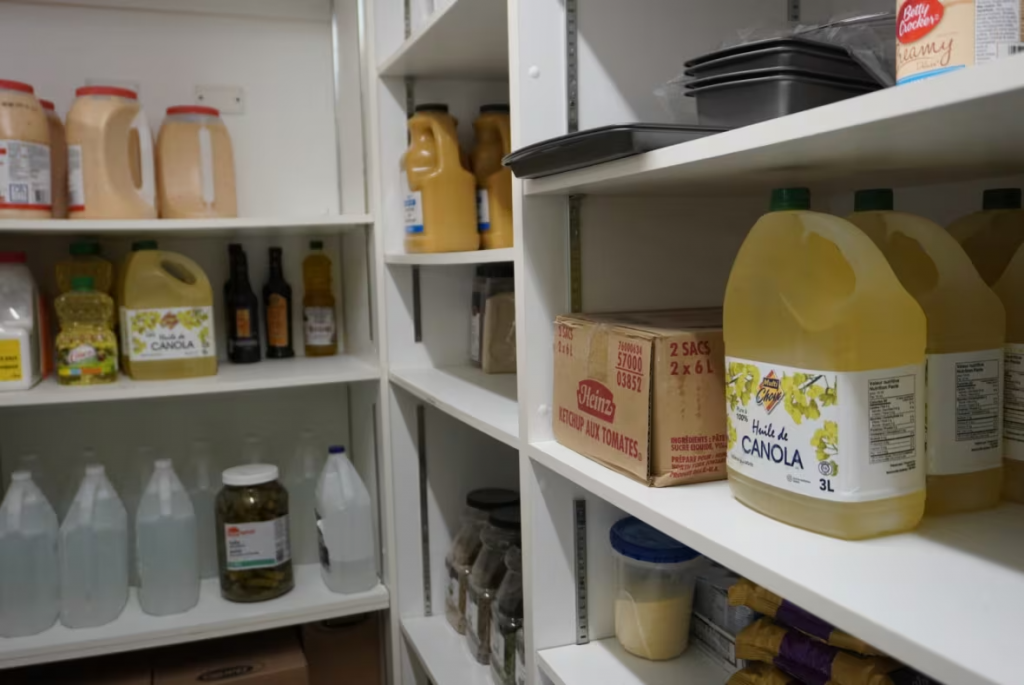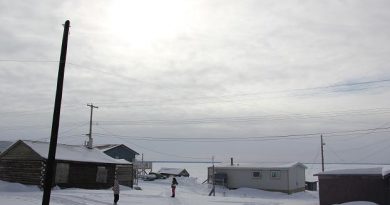Food bank usage doubles in Cambridge Bay since end of food voucher program

Feds say gov’t working on longer-term solution, but hamlet struggling to keep up in the meantime
The co-ordinator at the food bank in Cambridge Bay, Nunavut, says that in the weeks since residents have stopped receiving food vouchers, he’s seen nearly twice as many people need donations.
The food voucher program was funded through Indigenous Services Canada under the Inuit Child First Initiative and administered by the hamlet. In February, the federal government made changes to the program, including requiring assessments for each individual child accessing the funding and deciding community governments could no longer run it.
Cambridge Bay had enough funding to keep its food voucher program running until July 31.
Leonard Langan, who runs the community’s food bank, said that before the program ended, about 15 to 17 families would access the food bank a week.
Last week, he saw 27.
“Unless something happens, [like] we get another government program going, it’s just going to get more and more people coming in,” he said.

Langan said the food bank has a budget of about $2,000 for two weeks of food, diapers and feminine hygiene products. He said they rely on funding from organizations like Food Banks Canada and food donations from the stores and from visiting cruise ships — but they were struggling to stretch their resources even before the spike in clients.
“We give them basically enough to last for a day or two, and that’s basically all we can do to help them a little bit,” he said. “We try the best we can to make sure they don’t starve.”
Indigenous Services Canada said the changes were made in order to improve transparency and consistency, and make the decision-making process more efficient.
In an email, a spokesperson for the department wrote that the program can support families with supplements to their income for things like rent and groceries but that it’s not intended to displace government income assistance or programs like food vouchers.
The spokesperson wrote that Indigenous Services Canada is working on longer-term solutions and knows that short-term initiatives are not enough on their own.
In the meantime, Langan says the hamlet is doing everything it can to keep up.
Related stories from around the North:
Canada: Aurora College research team wants to change the way the North looks at food security, CBC News
Finland: One in 10 Finnish families with young children dealing with food insecurity: survey, Yle News
United States: New farm bill program aims to fight food insecurity in Alaska, Alaska Public Media



